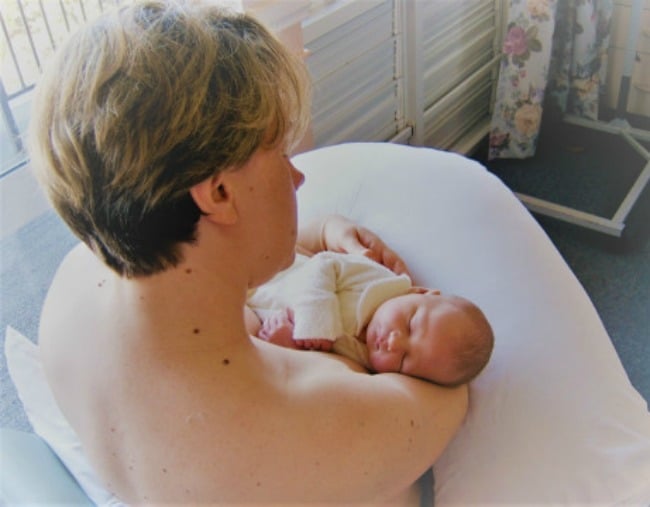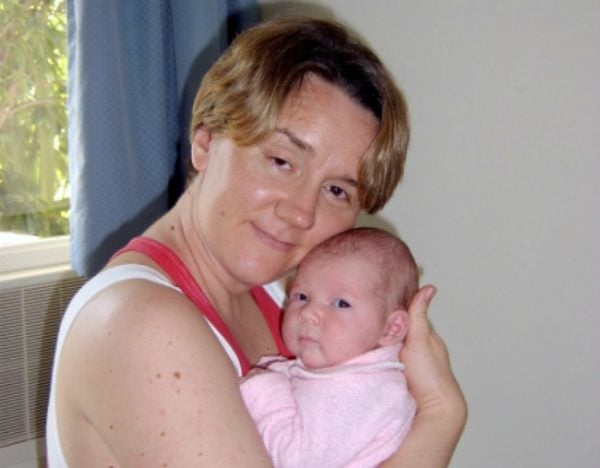
Warning: This post deals with topics of postnatal depression and postnatal psychosis and may be triggering for some readers.
I don’t dwell on what might have happened had I been sent home on day five after my daughter was born. But whenever the news throws up sensational stories reporting murder, infanticide, or suicide, and there is even a slim possibility the perpetrator might have been psychotic – then I think about it. Because that could have been me.
When our daughter was five days old I was two days away from being swallowed whole by my first psychotic episode. Thanks to luck and private health insurance, I wasn’t at home. My maternity midwife could see I wasn’t right on the day I was due to be discharged from the maternity hospital. Instead of being sent home I was referred to a private psychiatric hospital with a MBU (Mother Baby Unit). So, when it hit two days later I could be diagnosed with postnatal psychosis immediately, started on high dose anti-psychotic medication, and transferred to the hospital’s Special Care Unit (a high security locked ward), while my baby went home to be cared for by my husband and my mother.
For me, the postnatal psychosis also turned out to be the first episode of bipolar 1 disorder, but because I received the appropriate care at the right time, I recovered from that and subsequent episodes, and now lead a happy, highly functioning life.
But if I had had a less switched on midwife on duty that day, or no private health insurance – what do you think might have happened?


Top Comments
Bravo Anita, what a courageous woman you are to share your story when so many would not feel able to. I too am so tired of the sensationalised headlines around these ‘crimes’ by those who were suffering so deeply at the time. As a society we seem to still find it very hard to accept that ones mental health is not always in our control & refuse to accept an alternative to the ‘Evil’ tag. How many times do you hear stories like ‘Oh but he seemed like such a loving father, he seemed to adored his child, he seemed to be a great father, but all along he was an evil monster’.... why can we not see the possibility that ‘He did love his child, he did adore his child, he was an amazing father.... but she was a very ill person who didn’t get the help he needed, he was failed’. When these people ‘re-enter’ the world they need to deal with the reality of what they have done & no doubt unimaginable life-long pain, is this not enough with society telling them they are evil & not worthy. 😔
Thank you so much for taking the time to read and comment. You are so right in saying it is often easier for people to jump to conclusions without considering that an undiagnosed, untreated or poorly managed mental illness may be at least part of the equation. Of course it's not always the case, but I feel strongly we at least need to rule it out. If we dig deeper in a lot of these cases we may well come up with the immense short comings of our public mental health system. If you enjoyed this piece, you may also be interested in: https://anitalinkthoughtfoo...
To find more of my writing, you can find me at https://anitalinkthoughtfoo... - my website and blog about living a good life with mental illness (amongst other things). Happy Saturday everyone!
Anita